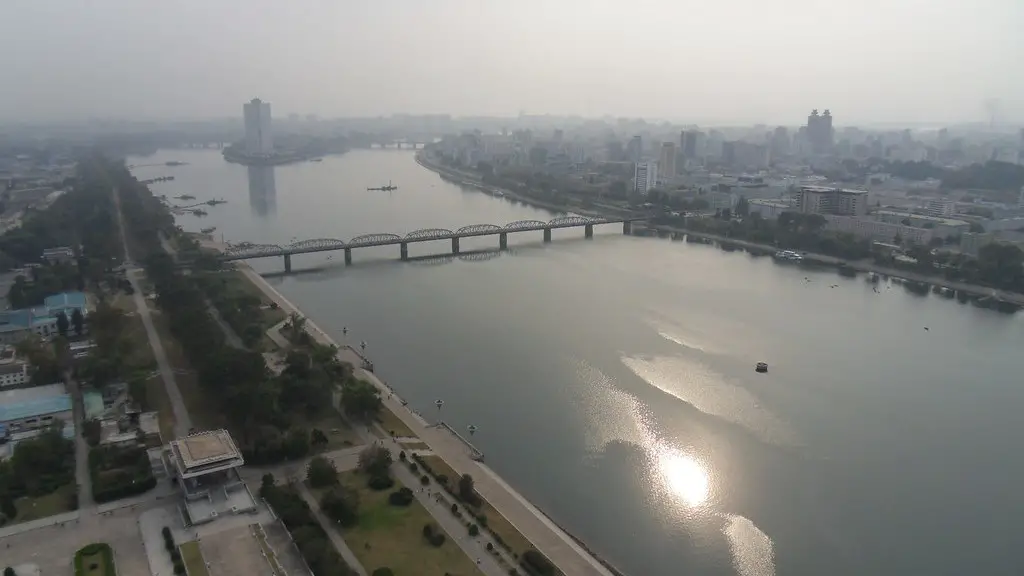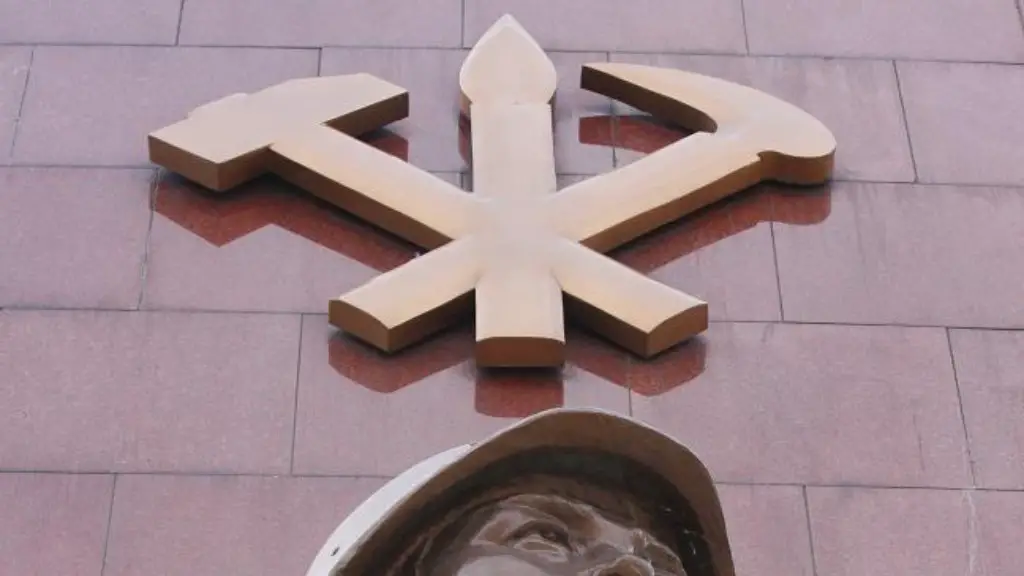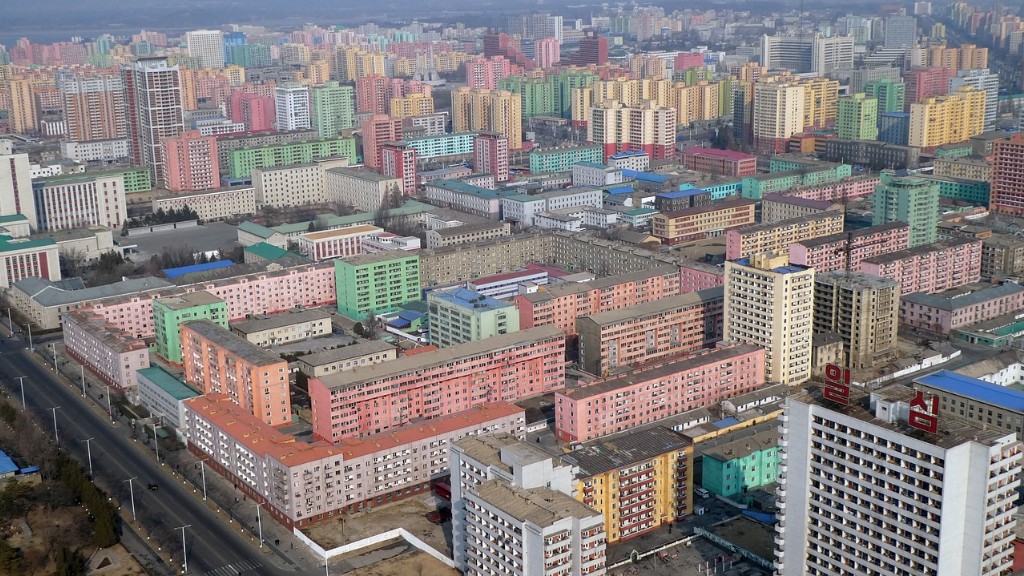Background Information
North Korea is an isolated, communist country located in East Asia. It is governed by the Democratic People’s Republic of Korea (DPRK) under the rule of the Kim family. North Koreans are not allowed to participate in any foreign political affairs, even if it involves allies of the DPRK. North Korea is considered to have one of the most repressive political regimes in the world and the country has been accused of numerous human rights violations. The most notable example of this is the absolute monopoly of power by the ruling family and the lack of any real democracy in the country.
Elections in North Korea
Although the DPRK is a one-party authoritarian state, the government does organize national elections. These elections are held regularly and members of the public are invited to participate, although their participation is heavily influenced by the government. The government claims that the elections are free and fair, with citizens being able to vote for candidates of their choice, however, this claim can be difficult to verify as there are no international monitors allowed in the country.
The North Korean government utilizes a single-party system, where the Korean Worker’s Party (KWP) is the only legal political party in the country. As a result, the elections are essentially a referendum on the KWP’s policies and ideology. Although citizens are allowed to cast a vote, they are not allowed to vote for different candidates as the KWP has absolute control of the representatives in North Korea.
Voting Process in North Korea
The voting process in North Korea consists of a system of universal suffrage. All citizens who are at least 17 years of age are required to vote in elections, although there is no specific requirement for voter registration. On election day, citizens are sent to their designated polling stations which are usually located within supervised public areas. Once there, voters are asked to place a ballot into the voting box and to state their names for the record.
In most cases, multiple names are listed on the ballot and the voter must select one of them as their representative. It is important to note that citizens are not presented with an opportunity to select between different parties and ideas. Instead, the voter is expected to select one of the candidates that have already been pre-approved by the government. In some cases, ballots are pre-filled and voters are merely required to affix their signatures in order to cast their vote.
Opinions on North Korean Elections
Political analysts and experts are deeply divided on the issue of North Korean elections. Some argue that North Korean elections provide the country with much-needed stability and allows citizens to voice their concerns in a democratic manner. Others argue that the elections are a sham and serve merely as a rhetorical tool by the ruling party.
The United Nations has called for free and fair elections in North Korea and has urged the government to ensure the safety and security of its citizens during the voting process. However, due to the country’s absolute secrecy and lack of access to international monitors, the UN has been unable to verify the legitimacy of elections in North Korea.
North Korean citizens’ view
It is difficult to measure the opinion of North Korean citizens on the issue as the media rarely reports on what people think about the process. However, there are reports from defectors who claim that North Koreans rarely discuss the electoral process and view it as a formality rather than a means to get their voices heard.
One of the primary reasons why North Korean citizens may be apathetic to the elections is because they are aware that the ruling KWP will always remain in power regardless of the outcome. This is due to the fact that the government controls the candidates and their decisions, meaning that any calls for change or reform would ultimately be in vain.
Impact of North Korean Elections
It is difficult to assess the long-term impact of North Korean elections as the results are often predetermined by the government. However, analysts suggest that these elections influence the country’s foreign policy by providing the government with an opportunity to show the international community that it is capable of conducting free and fair elections. This can give the impression that the public is in favor of the government’s policies and provide legitimacy to the regime.
In addition, the elections give the country an opportunity to express public opinion on various national issues such as the economy and foreign relations. This can be beneficial for the government as it can help shape its policies and anticipate public reaction to future decisions.
External pressures on North Korean Elections
In recent years, North Korea’s neighbors have placed increasing pressure on the country to hold free and fair elections. China, South Korea, and Japan have all called on the North Korean government to carry out legitimate elections and put an end to its repressive policies. However, the North Korean government has yet to respond to these requests and continues to maintain its authoritarian rule.
The international community has been highly critical of North Korean elections and the UN has repeatedly called for reform. In 2020, UN experts issued a report condemning the government for its blatant disregard for the rights of its citizens. This report has subsequently become the basis for international pressure on North Korea to implement meaningful electoral reforms.
Political Reform in North Korea
Even with external pressures and condemnation, the North Korean government has yet to display any real interest in political reform. For this reason, analysts believe that the chances of North Korea holding free and fair elections in the near future are slim. Despite the challenges, there is still hope that political reform can be achieved if the international community continues to put pressure on the regime.
International Sanctions Against North Korea
Various countries have used sanctions as a means to force North Korea to comply with international norms and standards. The United States and other nations have imposed economic and trade sanctions on the country in an effort to pressure the government into granting basic rights to its citizens. These sanctions are an attempt to restrict the flow of goods and money into North Korea and force the regime to change its policies.
The effects of these sanctions have been difficult to measure, as North Korea is largely self-sufficient and does not rely on imports for its economic survival. Nevertheless, analysts believe that international sanctions may be the most effective way to push the Kim regime to make meaningful reforms.
North Korean Reunification Process
North Korea and South Korea have been divided since the end of World War II and the Korean War in 1953. However, in 2018 both countries agreed to pursue a process of reunification and establish a unified government. This process is still in its early stages, but analysts hope that reunification will bring about political reform in North Korea and lead to free and fair elections.
Unfortunately, North Korea has long been one of the most isolated countries in the world and, as such, progress has been slow. Nevertheless, the reunification process is seen as the most promising way to push the DPRK to embrace political reform and hold free and fair elections in the future.
North Korean Defectors in South Korea
North Korean defectors have often spoken about the difficulty of living in a country with such rigid control and oppressive social norms, and many have relocated to South Korea in search of a better life. These refugees have provided first-hand accounts of what it is like to live in North Korea and the various challenges that citizens face.
Defectors in South Korea are an important source of knowledge about the DPRK, and many of them have become prominent political activists advocating for human rights in North Korea. These activists have pushed countries worldwide to speak up and take action against the regime’s oppressive policies in the hope of achieving positive change.
Organizations advocating for North Korean Human Rights
There are numerous organizations and initiatives worldwide that are actively advocating for the rights of North Koreans and trying to push the government to reform its policies. The most prominent of these is the United Nations Commission of Inquiry on North Korea, which was created in 2013 to investigate alleged human rights abuses in the country.
There are also numerous international non-profit organizations such as Liberty in North Korea and Free NK that are dedicated to fighting for human rights in North Korea. These organizations often work with North Korean defectors to raise awareness about the situation in the country and call for action from the international community.
North Korean Education System
Education is highly restricted in North Korea and citizens are only taught about the regime’s approved ideology and history. Schools are often run by the government and employ teachers who are chosen for their loyalty to the ruling party. In addition, citizens are not allowed to access foreign media or literature. These restrictions make it difficult for North Koreans to form an understanding of the outside world, let alone understand their own political system and the importance of elections.
Furthermore, North Koreans are taught to view elections as a chance to express support for their country and its leaders, not as a way to take part in the democratic process. This has led to a general lack of enthusiasm and understanding among North Korean citizens when it comes to voting in elections.
Technology and North Korean elections
Despite its oppressive regime, the North Korean government has made advances in technology and has started to employ modern methods of electioneering. Online voting has been introduced and is seen as a way to increase voter turnout and ensure the accuracy of the voting data.
In addition, technological advances have served to aid the government in monitoring citizens, meaning that the rulers are often privy to the trends of public opinion and can tailor their policies accordingly. This also allows for a more efficient dissemination of government-approved propaganda and further bolsters the North Korean government’s control over its citizens.
North Korean cyber capabilities
North Korea is known to have sophisticated cyber capabilities and it is believed that the country has employed hacking and phishing techniques to gain access to other countries’ computer networks. This has led to accusations from the United States and other nations that the North Korean government uses its cyber capabilities to disrupt elections and influence public opinion.
While there is no conclusive evidence to suggest that the government has engaged in such activities, the fact that North Korea has the capabilities and is willing to use them for its own gain is concerning. This raises the possibility that North Korea could interfere in the elections of other countries and, as such, poses a risk to international security.



